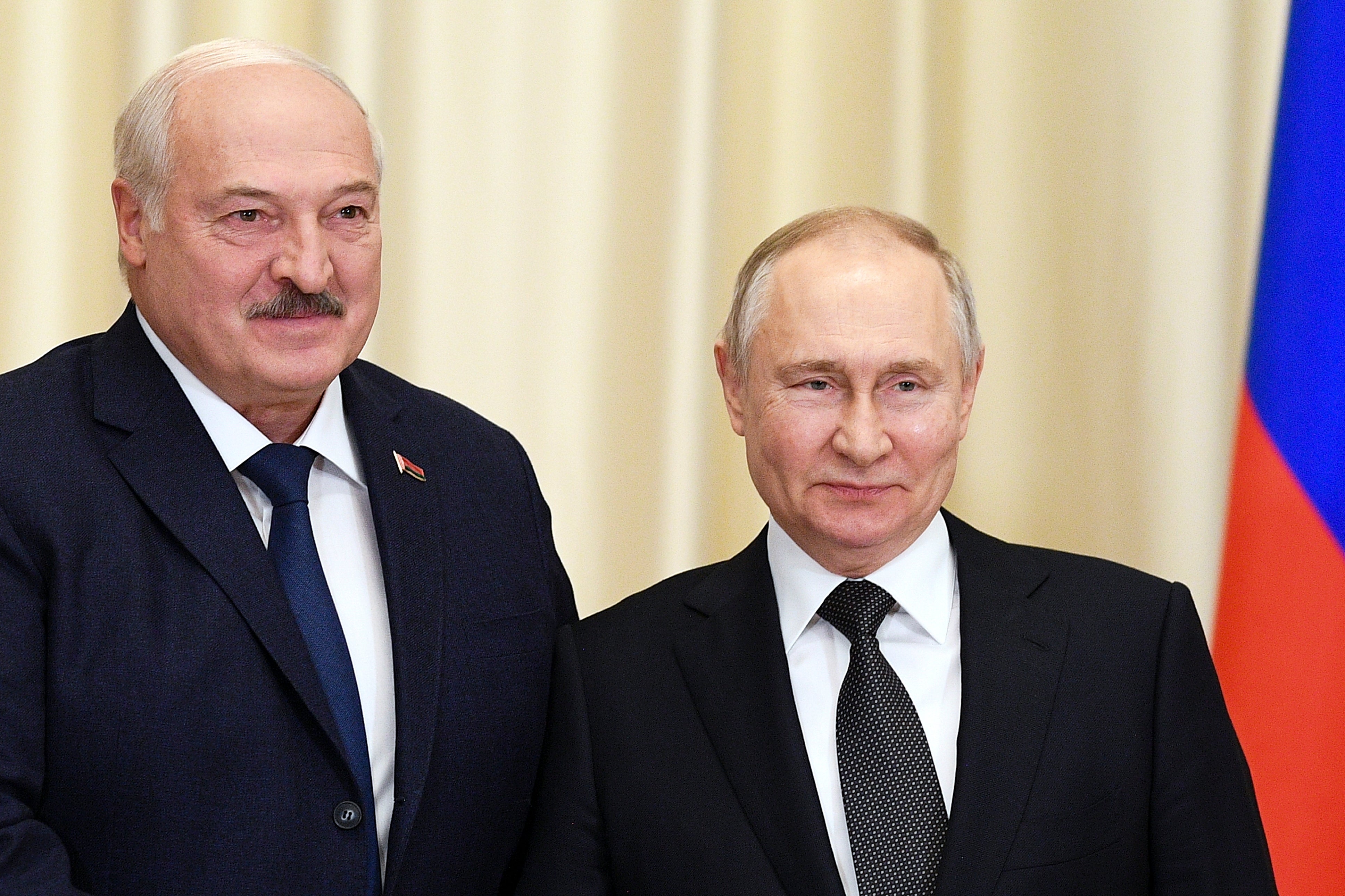Belarus leader and Putin ally Lukashenko on China visit
Belarusian President Alexander Lukashenko, a close ally of Russian leader Vladimir Putin, is due in Beijing to begin a three-day state visit

Your support helps us to tell the story
From reproductive rights to climate change to Big Tech, The Independent is on the ground when the story is developing. Whether it's investigating the financials of Elon Musk's pro-Trump PAC or producing our latest documentary, 'The A Word', which shines a light on the American women fighting for reproductive rights, we know how important it is to parse out the facts from the messaging.
At such a critical moment in US history, we need reporters on the ground. Your donation allows us to keep sending journalists to speak to both sides of the story.
The Independent is trusted by Americans across the entire political spectrum. And unlike many other quality news outlets, we choose not to lock Americans out of our reporting and analysis with paywalls. We believe quality journalism should be available to everyone, paid for by those who can afford it.
Your support makes all the difference.Belarusian President Alexander Lukashenko, a close ally of Russian leader Vladimir Putin, is due in Beijing to begin a three-day state visit Tuesday as geopolitical tensions rise over Russia's invasion of Ukraine.
China says the visit is an “opportunity to promote the further development of all-around cooperation between the two countries,” but there have been growing concerns that China is considering providing military assistance to Russia, something United States officials say would bring serious consequences.
China has called the U.S. allegations a smear campaign, saying it is committed to promoting peace talks and accusing Washington and its allies of fueling the conflict by providing Ukraine with defensive weapons.
“The U.S. has no right to point fingers at China-Russia relations. We will by no means accept the U.S. pressure and coercion,” Foreign Ministry spokesperson Mao Ning said Monday at a daily briefing.
Beijing claims to maintain a neutral stance in the year-old war, but has also said it has a “no-limits friendship” with Russia and has refused to criticize Moscow’s invasion, or even call it that. It has accused the U.S. and NATO of provoking the conflict and condemned sanctions leveled against Russia and entities seen as aiding its military effort.
Last week, those sanctions were expanded to include a Chinese company known as Spacety China, which has supplied satellite imagery of Ukraine to affiliates of Wagner Group, a private Russian military contractor owned by a close associate of President Vladimir Putin. A Luxembourg-based subsidiary of Spacety China was also targeted.
Belarus has strongly backed Moscow and allowed its territory to be used as a staging ground for the initial invasion of Ukraine a year ago. Belarus continues to host Russian troops, warplanes and other weapons.
China has long retained close ties with Lukashenko, Belarus’ only president since the position was created in 1994. Lukashenko crushed 2020 protests over his disputed reelection in a vote that the opposition and Western countries regard as fraudulent.
Despite its brutality, Lukashenko's suppression does not appear to have ended all opposition activity.
On Sunday, Belarusian guerrillas attacked a military air base that hosts Russian warplanes outside Belarusia’s capital, Minsk, according to activists.
Belarusian opposition organization BYPOL, in an online messaging app channel run by the activists, said an A-50 early warning and control aircraft was seriously damaged in the attack at the Machulishchy base near Minsk. The activists provided no evidence to support the claims, which couldn’t be independently verified. Belarusian and Russian officials made no comment, but Lukashenko urged top military and security officials Monday to tighten discipline.
Also Monday, prosecutors demanded 19-year prison sentences for exiled opposition leaders Sviatlana Tsikhanouskaya and Pavel Latushka, as well as fines of $15,000 and $10,000 respectively, amid a continued crackdown on dissent in the ex-Soviet republic.
Tsikhanouskaya, Latushka and three other opposition figures are being tried in absentia in Minsk on charges of conspiring to overthrow the government, creating and leading an extremist group, inciting hatred and harming national security. The prosecution also sought 12-year sentences for Maryya Maroz, Volha Kavalkova and Siarhei Dylevski. All five left Belarus following the unprecedented mass protests in 2020.